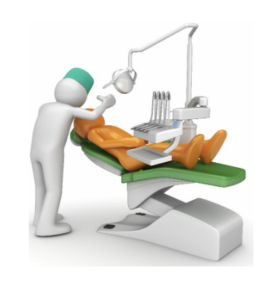- GAO Seeks New Members for Tribal and Indigenous Advisory Council
- VA: Staff Sergeant Fox Suicide Prevention Grant Program Funding Opportunity
- Telehealth Study Recruiting Veterans Now
- USDA Delivers Immediate Relief to Farmers, Ranchers and Rural Communities Impacted by Recent Disasters
- Submit Nominations for Partnership for Quality Measurement (PQM) Committees
- Unleashing Prosperity Through Deregulation of the Medicare Program (Executive Order 14192) - Request for Information
- Dr. Mehmet Oz Shares Vision for CMS
- CMS Refocuses on its Core Mission and Preserving the State-Federal Medicaid Partnership
- Social Factors Help Explain Worse Cardiovascular Health among Adults in Rural Vs. Urban Communities
- Reducing Barriers to Participation in Population-Based Total Cost of Care (PB-TCOC) Models and Supporting Primary and Specialty Care Transformation: Request for Input
- Secretary Kennedy Renews Public Health Emergency Declaration to Address National Opioid Crisis
- Secretary Kennedy Renews Public Health Emergency Declaration to Address National Opioid Crisis
- 2025 Marketplace Integrity and Affordability Proposed Rule
- Rural America Faces Growing Shortage of Eye Surgeons
- Comments Requested on Mobile Crisis Team Services: An Implementation Toolkit Draft
CMMI Eyes Population-Based Models Aimed at Increasing Primary, Specialty Care Coordination
The Center for Medicare and Medicaid Innovation (CMMI) is eyeing population-based payment models aimed at increasing care coordination between primary care physicians and specialists, according to its updated strategic vision for value-based care. Other initiatives include accountable care organization (ACO) models that increase primary care access for Medicaid members, specialty-focused models, and improved ways to measure ACO results. Read More.
Pennsylvania Dental Board Raises Renewal and Application Fees
Final-form rulemaking published on November 4, 2022, Pennsylvania Bulletin will increase the application fees and biennial renewal fees for all license, certification, and permit types issued by the Pennsylvania State Board of Dentistry. The fee increases were initially proposed for 2021 but were delayed because of the pandemic’s impact on dental practices; the fee increases now commence on Nov. 5, with increases occurring on a graduated basis over three renewal cycles. All state boards are required by law to establish fees that cover the cost of operations of the board. Access the final rule and newly established schedule of fees here.
The Congressional Research Arm Releases 340B Reports
Last month, the Congressional Research Service (CRS), Congress’s nonpartisan research arm, released two reports on 340B. The first report details the conflicting decisions from recent court cases related to 340B contract pharmacies and also give options on how Congress can intervene given the uncertainty with the program. The second report gives an overview of the 340B program as a whole, providing details on program data sales and entity participation, statutory requirements, changes to the 340B statute over time, Government Accountability Office reports and recommendations, and the contract pharmacy litigation. NACHC is actively working on a federal legislative strategy for 2023 to address the instability in the 340B Program. This week’s elections will determine who the key players are in Congress that health centers will need to work with to get 340B legislation passed.
Review the Medicaid and CHIP PHE Data Snapshot Here
Last week, the Centers for Medicare and Medicaid Services (CMS) released an update to the Medicaid and Children’s Health Insurance Program (CHIP) COVID-19 data snapshot. This preliminary data compares April 2022 to February 2020 and shows overall enrollment in Medicaid and CHIP increased by 20%. Information on COVID-19-related service utilization by beneficiaries includes data on COVID-19 testing, treatment, service use among those 18 and younger, telehealth, mental health, and other services.
Millions Have Health Insurance that Isn’t Good Enough
Commonwealth Fund President David Blumenthal and Sara Collins, VP of Health Care Coverage authored an op-ed discussing the underlying causes of inadequate health insurance and the sky-high cost of healthcare. Introducing and enforcing price transparency and reforms promoting value in healthcare would slow growth in spending and provide short-term relief. Legislation like the Inflation Reduction Act premium subsidies becoming permanent could aid in alleviating some of the consumer pain.
Importance of Maintaining and Monitoring Dental Waterlines
The Centers for Disease Control and Prevention (CDC) is issuing a Health Alert Network (HAN) Health Advisory to emphasize the importance of following existing recommendations for maintaining and monitoring dental waterlines. Multiple outbreaks of nontuberculous Mycobacteria (NTM) infections have occurred in children who received pulpotomies in pediatric dental clinics where the dental treatment water contained high levels of bacteria. CDC provides guidelines on infection control in dental settings, which contain recommendations to treat dental unit waterlines and monitor water quality. Dental providers should be familiar with these recommendations on how to properly maintain and monitor their dental equipment to ensure that dental treatment water is safe for patient care.
DOL Announces Nursing Expansion Funding Opportunity
The U.S. Department of Labor (DOL) is soliciting applications for the $80 million DOL Nursing Expansion Grant Program. Community Health Centers are among the organizations eligible to apply. This Funding Opportunity Announcement (FOA) will address bottlenecks in training the United States nursing workforce and expand and diversify the pipeline of qualified nursing professionals through two training tracks. The first track (Nurse Education Professional Track) will increase the number of clinical and vocational nursing instructors and educators by training new or upskilling experienced current or former nurses (including retired nurses) into advanced postsecondary credentialing necessary for nurses to become clinical and vocational nursing instructors and educators. The second track (Nursing Career Pathway Track) will train frontline healthcare professionals and paraprofessionals, including direct care workers, to advance along a career pathway and attain postsecondary credentials needed for middle- to high-skilled nursing occupations during the grant period of performance. Read the FOA.
Pennsylvania State Loan Repayment Program Opens for Applications
The Pennsylvania Primary Care Loan Repayment Program is now open for applications with a deadline of Dec. 14, 2022. Apply for loan repayment. Full-time and half-time two-year contracts are eligible. Physicians, dentists, and psychologists are eligible for up to $80,000 full-time and $40,000 half-time. Other practitioners are eligible for up to $48,000 full-time and up to $24,000 half-time. Eligible participants include MDs and DOs in Family Medicine, General Internal Medicine, General Pediatrics, Geriatrics, Obstetrics/Gynecology, and Psychiatry; CRNPs in Adult, Family, Pediatrics, Geriatrics, Women’s Health, Mental Health/Psychiatry); General Dentists; Registered Dental Hygienists; Public Health Dental Hygiene Practitioners; Certified Nurse Midwives; Physician Assistants (Adult, Family, Pediatrics, Geriatrics, Women’s Health, Mental Health/Psychiatry); Licensed Clinical Social Workers; Licensed Professional Counselors; Marriage and Family Therapists; and Psychologists.
CVS, Walgreens and Walmart Reach Tentative $12 Billion Opioid Settlement Deal
Three major retailers – CVS, Walgreens and Walmart – have tentatively agreed to pay at least $12 billion to settle a number of lawsuits brought by states and local governments alleging the retailers mishandled prescriptions of opioid painkillers, according to reports from Bloomberg and Reuters. Read more.
Nearly 334,000 Providers Left Healthcare Workforce in 2021
Modern Healthcare reported on Oct. 20, 2022, that nearly 334,000 providers left the healthcare workforce in 2021, driven by burnout and concerns related to the pandemic, according to a report by Definitive Healthcare. About 117,000 were physicians, 53,000 were nurse practitioners, and nearly 23,000 were physician assistants. Read more.


